Kae Cheatham's Blog: Whoa! Another Author?, page 3
July 28, 2012
The Other Me
Sometimes I get way too extended, and don't follow through on all the projects I get started. I have excuses, but I won't share them--too embarrassing :D. Right now I'm working on my Photography...the other me that I enjoy as much as reading/writing.

I've left my photo gallery in limbo for a while. To generate more interest I'm offering a limited 20"x16" stretched canvas
edition of this image. It's a Montana Landscape--which is sort of different for me, as landscapes aren't my preferred subject. The afternoon light on the hills northwest of Wolf Creek, Montana was too good to ignore.
Montana Landscape 1
Only 12 images will be produced.
Offered through 1 August 2012
Maybe if I get on track with one project, it will spur me on in others.
July 10, 2012
I Have *The Weapon*!
Heather Hopkins
The Weapon

July 9, 2012
Pioneer Doctor: The Story of a Woman’s Work - Review
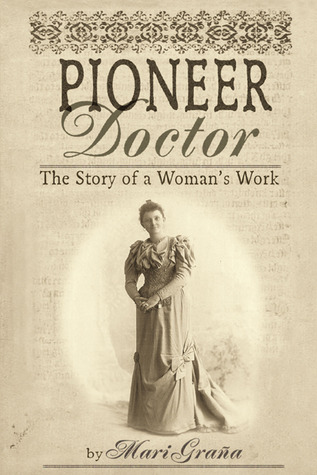 Published January 1st 2005 by TwoDot; ISBN 0762736542 (ISBN13: 9780762736546)
Published January 1st 2005 by TwoDot; ISBN 0762736542 (ISBN13: 9780762736546)This book was loaned to me by a friend.
I enjoyed reading Pioneer Doctor: The Story of a Woman's Work. It was refreshing to see the struggles and accomplishments of a western woman, when so many biographies (and fiction) focus on the men of the West. Often the woman is the "supportive wife" the "hardworking sod-buster" and while those have always been necessary to the growing, 18th Century society, I like reading about a professional woman who succeeded in harsh social conditions.
Mari Graña has set down the a biographical story of her grandmother, Mary Babcock Atwater, who carved out opportunity in the frontier west. It begins at the end of the 19th century, during an era in women's history when those with strong will and positive thinking made a difference for the rest of us.
From Book Page:When Mollie Babcock stepped off the train in Salt Lake City, Utah, in 1890, she knew she had to start a new life. She'd left her husband and their medical practice in Iowa, and with only a few hundred dollars in her pocket and a great deal of pride, she set out to find a new position as a physician. Due largely to the fact that the mine owner's young wife was expecting their first child, she took a job as doctor to the miners at Bannack, Montana, and thus began her epic adventures in the Rocky Mountain West.
Using a narrative style, Graña portrays of Dr. Babcock's emotional problems of dealing with a divorce and trying to make her way in the male-dominated medical profession. Graña gives good pictures of both Mormon-dominated Salt Lake City, and the mining towns. She paints a vivid picture of both the harsh mountain environments and lifestyles of the times. She shows how Dr. Babcock dealt with not only the medical problems in the mining camps, but also tackled issues such as domestic violence and sanitary worries.
Through this book, I was enlightened about some of the circumstances of the mining areas--several of which are near where I live. There were a few places where the exposition of her situation seemed a bit long, but overall, I found this a well-written and fascinating story about a person who should be considered a true hero of the West.
Mari Graña is a freelance writer an editor in Santa Fe. Her book, Begoso Cabin, a regional history of New Mexico, won the Willa Cather Award (from Women Writing the West) in 2000 and the Southwest Writers Award in 1997.
June 16, 2012
Futurist Perception

A few decades ago a colleague had business cards made for each member of our writers group; each card had some words referring to that person's interests. On mine he put "Historian and Futurist" (I still have the cards). It seems quite a dichotomy, and I found it amusing. My published books, at that point in time, had been historical fiction, but he knew I was reading, absorbing and wanting to write science fiction. Now I’ve published science fiction, but to me, the futurist tag still didn't fit--until that past few years when I'd read traces of things I'd imagined in physics and neuroscience books.
One of my favorite authors, David Brin, is an affirmed futurist. Concepts and science happenings he wrote about in the ’80s are now coming to be or being proved. Christian Cantrell, is one of many young authors who have published books with some projected techno possibilities that have now become realities. My scientific background is minimal, so I sketchily created future technology on some standard foundations others had developed; I've always felt that my science fiction has dealt more with future social possibilities and conundrums than with any hard science.
Imagine my surprise when I watched a new episode of "Through the Wormhole" on the Science Channel and scientists told about a probable gene-mod future that would alter/advance the human mind and could lead to a world of Super Humans. 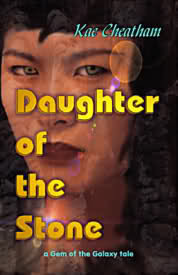 It wasn't the Super Human part that rang my bell, but the gene modification references. In my first science fiction book, Daughter of the Stone, the people have had their DNA altered so that they have selective, perfect memories and abilities. It had been a project of another species who intended the humans to be a working class, and their intended jobs were programmed into their system to be passed down from generation to generation (through bio-nanotech) to alleviate the need of extensive training and education. The current gene-mod references given in the TV show, matched my imagined occurrence quite closely. (I veered from the science end to the social aspect, focusing the story on the problems when the "slaves" became autonomous.)
It wasn't the Super Human part that rang my bell, but the gene modification references. In my first science fiction book, Daughter of the Stone, the people have had their DNA altered so that they have selective, perfect memories and abilities. It had been a project of another species who intended the humans to be a working class, and their intended jobs were programmed into their system to be passed down from generation to generation (through bio-nanotech) to alleviate the need of extensive training and education. The current gene-mod references given in the TV show, matched my imagined occurrence quite closely. (I veered from the science end to the social aspect, focusing the story on the problems when the "slaves" became autonomous.)
So with a tad of perception about a could-be future, I now feel comfortable calling myself a Futurist.
June 14, 2012
Silent Witness - Review
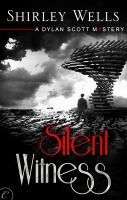
I like a good mystery, and Shirley Wells's title, Silent Witness had some extra perks, too. I downloaded it to my Kindle after reading a blurb about it. At first I thought the book would be related to the BBC TV show of the same name, but it's quite different.
From the book page:
After his ex-wife bled to death in a bathtub covered in his fingerprints, the case against Aleksander Kaminski seemed open and shut. Though sentenced to life in prison, he swears he's innocent, a claim supported by his current wife.
Private investigator Dylan Scott finds himself drawn back to dreary Lancashire in a search for justice. The evidence against Kaminski is damning, but having been unjustly jailed himself, Dylan is compelled to pursue the case; if there's even a small chance the man is innocent, he has to help. The other obvious suspect--the victim's second husband--has a watertight alibi. But Dylan has a strong hunch that as usual, there's more going on than meets the eye in Dawson's Clough.
The deeper Dylan digs, the more secrets he unearths. The question remains: If Kaminski didn't murder his childhood sweetheart, who did?
Plenty of twists and turns in the story line, and Dylan Scott is a great character to lead the reader along the curvy path. This is the third mystery featuring this protagonist. I hadn't read the previous stories, but had no problem knowing him. The good characterization continues with the people who populate this interesting story.
I especially like that Dylan has a good relationship with his family. A few problems between him and his wife, yes, but it was evident they would work them out. The couple also has a teenage son, and it was refreshing to find him easy-going, not rebellious, and supportive of his family and the new baby girl in their midst....Yea!
This family interaction, as much as I approved, didn't distract me from the mystery of who killed Kaminski's wife. His parents believe he's innocent, and they have hired Dylan. Kaminski's wife is devastated by her husband's incarceration. She runs an canine rescue facility; the veterinarian who treats the many animals is very protective of her. Dylan's prison interview with Kaminski doesn't clear up much, in fact it adds more mystery to the mystery.
Several times I thought I had this solved, only to have my idea quashed by new (and logical) information. In all, Silent Witness was very enjoyable, with characters I will be glad to read more about.
June 4, 2012
Empowerment
Women, don't forget to assert your rights tomorrow in primaries.
June 1, 2012
It's Been Cut
The past few weeks I've been adjusting to a new computer system: transferring files, adding new programs, and so on. I did a little culling, too, and found some passages from my books that had been cut from the final versions. Here's one from Dead Heroes, and I cut it because it seemed way too cerebral for a prologue. I didn't want to lose readers by page two!
The character, Edgar Jahn, is instrumental to the whole story, and is present in the revised prologue. But in this version, there are too many unknown quantities--things that need explaining--terms and descriptions that could put off a reader. The final prologue has much more action and a scene readers can relate to, with just a few anomalies. But Science Fiction readers expect a bit of "strange;" that's what makes books interesting and fun.
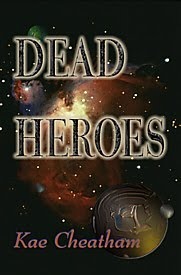 Dead Heroes - Cut Prologue
Dead Heroes - Cut PrologueEdgar Jahn sat in the lounge of his dimly lit room. Shelves and cabinets were filled with his sculptures. Most were abstract forms in a variety of mediums--his own private language. The room was slowly cooling. He doubted it would cause concern, he had done this before—practicing for the trip he knew he would make. This was sooner than he expected, but he was ready.
Clues that Tyus Derkson was going to eliminate him had become blatant three weeks ago. First came Edgar's dismissal from the Science Corps, then a cessation of teaching duties. Now he had been restricted to his suite. During the twenty-eight years he had lived on Yiven, his suite had always been monitored; but since his "arrest" psi sensors had been added. He didn't let on that he knew. Rumor was he suffered an illness. Messages of goodwill had come from many. Only his beloved Marta Tovich knew the truth; Edgar had spoken with her on the night of his arrest.
He wished he could visit Marta before he left. He knew where she was, could think himself to the location. But the psi sensors would detect that, just as they had when he went back to speak with Gerren after his arrest. His mental visit had been detected, and Derkson himself had stormed in and broken the contact, confirming that psi sensors were in place in Gerren's suite, too.
Marta and their daughter, and Gerren were all he would miss from these decades of strange captivity. Years in the stasis of a timehold chamber. Gerren had also been kept in one. But Derkson revived Edgar first, needing his scientific knowledge. He threatened to kill Gerren if Edgar didn't cooperate; Edgar had been compliant, always hoping to devise away to get Gerren back home. Many years later, Gerren was revived—a six-year-old thrust into uncertainty. Now at age ten, it was evident that Gerren would be a promising scholar, an astute linguist and mathematician; his interests were unbounded.
What is Derkson planning for the boy—or more importantly, Gerren the man? Gerren would be in his thirties when Tal began encroaching on this star system. New Esrii would be particularly vulnerable at that time. Edgar was certain Derkson intended some sort of attack—revenge for bygone crimes—and would use Gerren in his plans.
He drew a long breath. Don’t think on it. Do this. Go back. Warn New Esrii what will probably happen.
He had hoped to defer this trip for several years--investigate further what Derkson was up to, but the sudden change in his status convinced him he had to leave now--before Derkson incapacitated his mind in some way and rendered Edgar’s plan useless. He returned his concentration to the sculptures. He had the information memorized, yet he scrutinized the codes he had written--his notes on strellogy--reminders of what he had to do to get back to his home world of New Esrii. He wondered how far strellic research had proceeded there.
"Too many variables," one associate had argued decades ago.
"No consistency--no controls," was the consensus of the Seminary Board where he had been a leading scholar with a mental achievement ranking that broke records.
But he now had control and consistency. He had enhanced his abilities and tested them many times before the psi sensors had been placed on this suite. Through quiet exercise and meditation, Edgar had determined which physical demands gave him the strongest mental focus; he had prepared his mind to function in the cold that was slowly increasing around him. He would think of his home world and be there, leaving behind this husk—this body. No time involved, no flight constraints. It would just happen.
Although many of his former colleagues--now aged—would probably have government influence by now, Edgar wasn't certain he could trust them. The arguments and debates about genera had consumed much of the politics, shaped too many points of history. No. He would go to Gerren's remaining parent. His name had come to him a few days ago: Ricostam Deece--he would be receptive to him.
He flexed his fingers, felt his limbs grow numb. Slowly he walked to a large disk-shaped sculpture that set on a cluttered shelf. Caressing it, his fingers traced out the thin lines--the geographic coordinates for his destination. Not that the scientific information would get him there, but it provided his focus. He took the small piece with him and sat on the lounge. He could picture the land, the layout of buildings and streets. He set the lounge controls for the reclining angle he knew was best, and added color to his thoughts--orange soil, blue-black structures, the mauve and purples of the trees.
Almost time. He remembered the park by the Fundament--a quiet, sweet-smelling place with an abundance of song birds. He forced away a moment of exhilaration—couldn't allow that—and drew a long breath as he uncluttered his mind—retained the focus he had built. Except for his fingers on the coordinates, he felt no physical stimulation. Yet unwittingly, a latent thought went to Marta. He saw her in a dining room. I am going. He sensed her sudden shock. His last thought to her: Timaht give us courage to endure.
May 30, 2012
Beyond Boundaries - Review
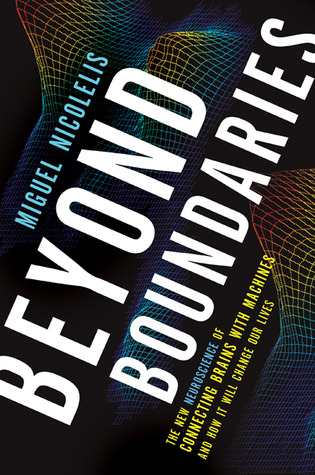
I found Beyond Boundaries at my Public Library. A well written book about the fascinating subject of neuroscience. Since all of my own Science Fiction titles have "brain anomalies" as standard for most of my characters, I am drawn to neuroscience books. I especially appreciated the analogies used by Duke University neuroscientist/author Miguel Nicolelis: music and futbol (soccer)--two of my passions. I think that helped the book resonate well with me. Historical information about the neuroscience through several centuries was quite interesting, as well as the current different camps of approach to research.
The overall book explains and verifies the ability of the brain to interface with non-biological entities. The publisher's info on the book page states: "Imagine living in a world where people use their computers, drive their cars, and communicate with one another simply by thinking....His lab is now paving the way for a new treatment for Parkinson's, silk-thin exoskeletons to grant mobility to the paralyzed, and breathtaking leaps in space exploration, global communication, manufacturing, and more."
Beyond Boundaries was published in print in 2011, and is now available electronically. I'm wondering if the new edition will contain updates on some of the original books predictions. In the last chapters of the books, Nicolelis had speculated on where all the research was now headed. And already many of his hopes and projected uses for brain-machine interfaces have come to be. New organizations are springing up to advance this, too. Interesting concepts that have me anticipating breakthroughs in medical applications--and sooner than later.
Beyond Boundaries is a good introduction to this future potential for our brains.
May 28, 2012
A recent WSJ article linked the need to brag and talk abo...
A recent WSJ article linked the need to brag and talk about one's self to the pleasurable sensations doing so creates in the brain.
Hmm. So I need to please myself more and get back to blogging.
April 26, 2012
Antarktos Rising - Review

I downloaded Jeremy Robinson's Antarktos Rising (Origins Saga, Book 4) after reading a clip about it on Indie Snippets. I guess the story could be called dystopian, since the Earth has suffered a massive change. The change is environmental, not sociopolitical. But something else is occurring that promises more devastation.
From the book page:
A phenomenon known as crustal displacement shifts the Earth's crust, repositioning continents and causing countless deaths. In the wake of the global catastrophe, the world struggles to take care of its displaced billions. But Antarctica, freshly thawed and blooming, has emerged as a new hope. Rather than wage a world war no nation can endure, the leading nations devise a competition, a race to the center of Antarctica, with the three victors dividing the continent.
It is within this race that Mirabelle Whitney, one of the few surviving experts on the continent, grouped with an American special forces unit, finds herself. But the dangers awaiting the team are far worse than feared; beyond the sour history of a torn family, beyond the nefarious intentions of their human enemies, beyond the ancient creatures reborn through anhydrobiosis—there are the Nephilim.
Very well written, this is the electronic version of a 2007 title. I am writing this book review several weeks after finishing the book, and I vividly remember all the characters—their personalities and importance in the story. I was a bit bothered by the red herrings thrown out about Mirabelle's background. In some ways her parentage and marriage, while vehicles in the emotional story, could have been set upfront, rather than making them mysteries.
The story itself has action, emotional drama, environmental conundrums. Each are presented with convincing realism, even if drawn out a bit. And The Nephilim...Regardless of my beliefs on this, the circumstances were well written. Very visual.
I could have been happy with a bit less melodrama, but overall, Antarktos Rising was a satisfying read.
Whoa! Another Author?
- Kae Cheatham's profile
- 24 followers



